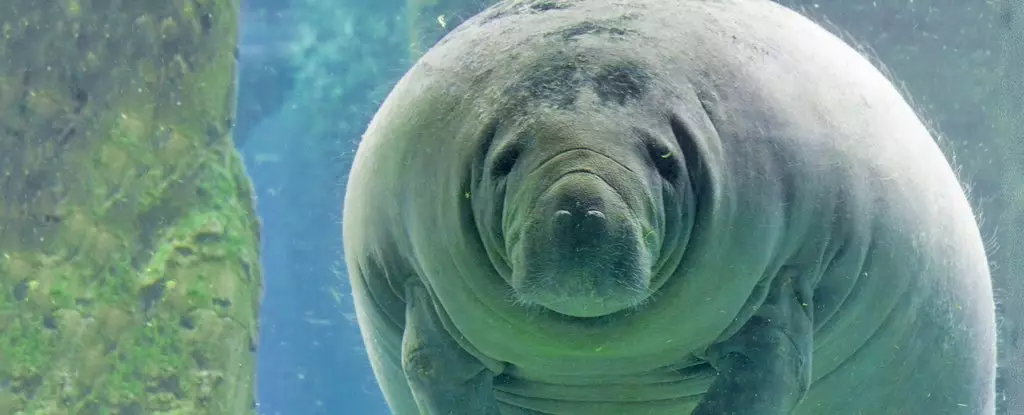When it comes to the weird and wonderful world of animal butts, nature never fails to surprise us. From flatworms with multiple anuses protruding from their backs to face mites that don’t poop at all, the range of waste elimination techniques in the animal kingdom is truly bizarre. One animal that stands out for its unique pooping strategy is the face mite, Demodex folliculorum, which lacks an anus altogether. Instead of excreting waste like most creatures, face mites store it in their large gut cells and release it onto the host’s face after they die. This unusual method may explain why face mites have a short lifespan of up to 16 days. Moreover, their waste can contribute to skin inflammation in some individuals, highlighting the strange and sometimes detrimental effects of nature’s pooping strategies.
While some animals may have strange pooping strategies, others have unique ways of utilizing their butts for survival. Take manatees, for example, whose cellulose-rich seagrass diets produce large quantities of methane, which they store in their large intestines. This methane allows manatees to regulate their buoyancy levels by either floating or sinking as needed. Interestingly, observations of manatees in captivity have shown that constipation can prevent them from diving, while laxatives help them regain this ability. These observations demonstrate how flatulent bums can play a crucial role in helping manatees navigate their aquatic environment with minimal effort.
Sea cucumbers are another example of animals with unique butt-related behaviors. These creatures endure pearlfish wiggling into their bum holes, which also serve as breathing holes. While sea cucumbers’ toxins deter predators, pearlfish take advantage of these hiding spots to feed on their organs and gonads. To protect themselves from sea cucumbers’ toxins, pearlfish secrete a mucous coating around their bodies. Although sea cucumbers can regrow their organs, they struggle to keep pearlfish out of their rectums, highlighting the delicate balance of nature’s interactions.
South American scorpions belonging to the Ananteris balzani species have an unusual defense mechanism involving their anal region. When attacked, these scorpions can drop their tails, severing their anus in the process, an act known as autotomy. While this sacrifice may prolong their lives, it comes at a high cost, as these scorpions can no longer excrete waste. Despite continuing to hunt and feed on small prey, these scorpions eventually face death by internal buildup of waste, a fate that raises ethical questions about the trade-off between survival and quality of life in the animal kingdom.
Beyond the humor and strangeness of animal butts and their pooping habits, these aspects play a crucial role in sustaining life on Earth. For instance, whale excrement fertilizes marine ecosystems by feeding floating plankton, which form the basis of the marine food chain and absorb carbon dioxide from the atmosphere. This nutrient recycling process, exemplified by Sperm whales’ massive poonamis, underscores the interconnectedness of nature’s systems and the significance of anuses in maintaining ecological balance. Ultimately, the diverse pooping strategies in the animal kingdom highlight the importance of these bodily functions in supporting life on Earth.


Leave a Reply